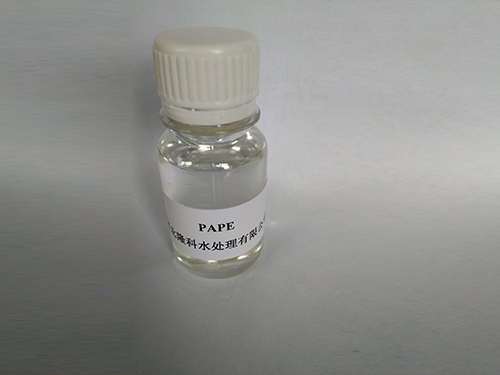Effective PBTC Scale Inhibitors for Enhanced Performance and Longevity in Industrial Applications
The Role of PBTC Scale Inhibitors in Water Treatment
In the realm of industrial water treatment, the efficient management of scaling problems is essential for maintaining optimal operational efficiency. One of the key players in this field is the PBTC (phosphonobutane-1,2,4-tricarboxylic acid) scale inhibitor, recognized for its effectiveness in mitigating scale formation in various water systems. This article delves into the advantages, mechanisms, and applications of PBTC scale inhibitors, particularly in cooling water systems and oilfield operations.
Understanding Scale Formation
Scaling occurs when dissolved minerals precipitate out of water, leading to the formation of hard deposits on surfaces within pipelines, heat exchangers, and other equipment. Common minerals responsible for scaling include calcium carbonate, magnesium sulfate, and silica. These deposits can significantly impair heat transfer efficiency and increase the risk of corrosion, ultimately leading to increased maintenance costs and downtime.
What is PBTC?
PBTC is a synthetic organic compound that belongs to a family of phosphonates, which are widely recognized for their ability to prevent scale formation. Its molecular structure allows it to interact effectively with calcium and magnesium ions, disrupting their ability to crystallize and form deposits. Unlike traditional scale inhibitors, PBTC is known for its high thermal stability and resistance to hydrolysis, making it suitable for high-temperature applications.
Mechanism of Action
The mechanism by which PBTC functions involves a multi-faceted approach. First, it works by chelating hardness ions, effectively binding with calcium and magnesium to prevent them from precipitating out of solution. Additionally, PBTC alters the morphology of scale crystals, preventing them from growing larger and adhering to surfaces. This dual action not only inhibits scale formation but also aids in the dispersal of any existing foulants within the system.
Advantages of PBTC
pbtc scale inhibitorpbtc

The use of PBTC as a scale inhibitor offers several advantages
1. Enhanced Performance PBTC has shown superior performance in inhibiting scale formation compared to many traditional inhibitors, especially in environments with high temperatures and pressures.
2. Environmental Profile As an environmentally friendly alternative, PBTC is biodegradable and poses minimal risks to aquatic life when properly managed, aligning with modern sustainability practices in industrial operations.
3. Cost-Effectiveness By effectively reducing scaling issues, PBTC helps lower operational costs associated with maintenance and downtime. This leads to increased productivity and better resource management.
4. Compatibility PBTC is compatible with a wide range of chemical treatments and can be used alongside biocides and corrosion inhibitors, providing a comprehensive solution for water treatment.
Applications of PBTC
PBTC scale inhibitors find extensive applications in various industries. In cooling water systems, they are utilized to prevent the deposition of scale on heat exchangers, thereby enhancing thermal efficiency and prolonging equipment life. In the oil and gas industry, PBTC is employed to manage scale in both water injection and production wells, ensuring optimal flow rates and reducing the risk of costly interventions.
Conclusion
In as much as scaling in industrial water systems presents challenges, the advent of advanced scale inhibitors like PBTC offers effective solutions to manage these issues. With its unique properties, PBTC not only prevents scale formation but also promotes a more sustainable and cost-effective approach to water treatment. As industrial processes continue to evolve, the role of PBTC scale inhibitors will undoubtedly be pivotal in achieving better performance and efficiency in water management systems. By adopting such innovative solutions, industries can ensure the longevity and reliability of their operations while upholding environmental responsibility.
-
lk-319-special-scale-and-corrosion-inhibitor-for-steel-plants-advanced-solutions-for-industrial-water-systemsNewsAug.22,2025
-
flocculant-water-treatment-essential-chemical-solutions-for-purification-processesNewsAug.22,2025
-
isothiazolinones-versatile-microbial-control-agents-for-industrial-and-consumer-applicationsNewsAug.22,2025
-
scale-inhibitor-key-solutions-for-water-system-scale-preventionNewsAug.22,2025
-
organophosphonates-versatile-scale-inhibitors-for-industrial-water-systemsNewsAug.22,2025
-
scale-and-corrosion-inhibitor-essential-chemical-solutions-for-water-system-maintenanceNewsAug.22,2025





